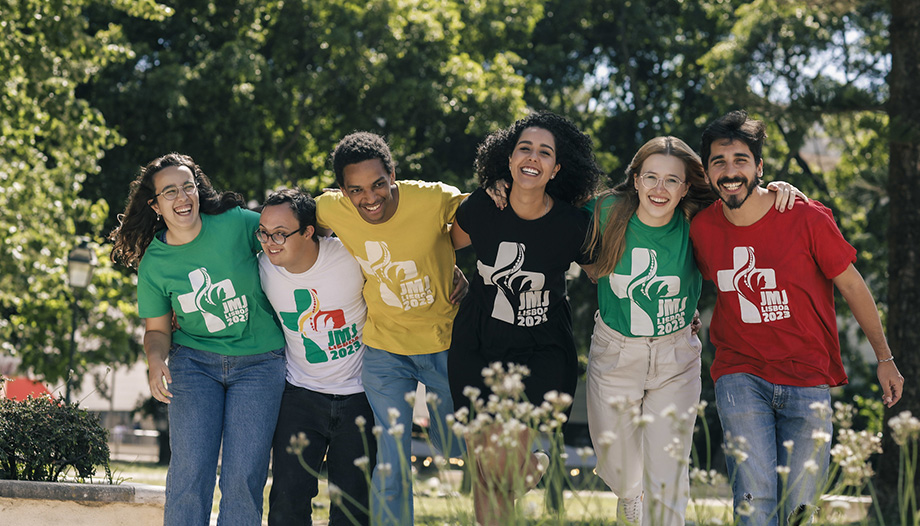For some, World Youth Day should have as its objective the encounter and coexistence among young people, the welcoming of cultural and religious diversity, the promotion of solidarity and interculturality (all this could be summed up in the dialogue) but not the conversion (especially if one thinks of an aggressively imposed conversion).
For others, WYD should have as its main purpose the conversion to Christ or evangelization (the proclamation of the Gospel); for the will of God cannot of itself will the diversity of religions. Moreover, one's beliefs are not indifferent or irrelevant. Therefore, focusing on welcoming diversity and dialogue could lead to an epistemological indifferentism, which would make any attempt at conversion an arrogant aggression.
In this way, dialogue would be opposed to conversion or evangelization.
Evangelization broadly understood
However, St. Paul VI explains that evangelization is a dynamic reality, a process composed of several elements: "renewal of humanity [of criteria, values and interests, with respect for conscience and convictions], witness, explicit proclamation, adhesion of the heart [conversion], entry into the community, acceptance of signs, apostolic initiatives" (Exhortation, "The Evangelization of the Poor"). Ap. Evangelii nuntiandi, n. 24). These elements, he adds, may seem to oppose or exclude each other; but in reality they are complementary and mutually enriching; and for this reason each of them must always be seen as integrated with the others.
This means (and this is where we wanted to arrive) that conversion is an element of a broader process, which is evangelization; and that it encompasses respect and dialogue as well as Christian witness and the proclamation of Christ, passing through personal conversion to the experience of what is Christian in the Church, which leads back to dialogue and Christian witness, closing the cycle.
In other words: encounter, dialogue and welcome on the one hand and, on the other, the proclamation of Christ and the call to conversion are not realities that can be opposed to each other; rather, they are complementary: they require each other and cannot replace one another.
If we turn to the Gospel, we see how Jesus unites in his teaching the encounter and dialogue with people together with the call to conversion and the proclamation of the Kingdom. Moreover, already by the very mystery of the Incarnation that constitutes him, Jesus Christ unites in himself the dialogue of salvation that God wants to offer to the world (since he is the Word made man) and the Gospel (the proclamation of salvation and the call to conversion) in their personal fullness. The existence of Jesus Christ and his redemptive self-giving is the form that God's dialogue with mankind acquires when the fullness of revelation arrives. Hence we Christians should aspire to unite both aspects, starting from our life in Christ through the Holy Spirit.
Encounter and proclamation, dialogue and call to conversion
Is mission the same as evangelization? As the word itself suggests, the evangelization (understood not only as the first proclamation of the Gospel but as everything that the Church does in its mission and that Christians do to spread the message of the Gospel through our lives) is the action to put into practice, "in action", the mission that the Lord has entrusted to us: to evangelize, to announce the Good News of salvation.
Every Christian is sent to bear witness and proclaim the faith by his life and words. Above all, wherever he is, with God's abundant help and within the framework of the ecclesial family. Moreover, he can receive gifts (charismas) to collaborate with others in various tasks or services, within the great evangelizing mission.
Young people are called to meet, to dialogue about the challenges of today's world. And this dialogue and these challenges are also those that the mission of the Church faces. On the part of Christians, dialogue (for the sake of salvation) is one of the keys to the pastoral constitution. Gaudium et spes of the Second Vatican Council. The programmatic encyclical of Paul VI, Ecclesiam suam, published when the work of the Council was in progress, dedicates its third part to the dialogue of salvation. It specifies some of the characteristics of this dialogue: clarity, affability, trust and pedagogical prudence (cf. n. 35), without renouncing Christian identity.
Young Christians participate, with their peers, in the improvement of society and in the transformation of the world for the good of all. In their encounters and dialogues with other young people, they have a proposal, faith, which brings light and life to the world and to people.
We Christians do not leave "aside" this proposal (which involves the proclamation of Christ and the call to conversion) in our encounter and dialogue with everyone. And vice versa: neither do we forget, at the moment of proposing the Gospel message, the dialogue on the great questions and challenges of our time. That is why we take care in our encounters, friendships and work with those around us.
How should this binomial dialogue-call to conversion be configured in practice? This depends in each case on adequate spiritual, ecclesial and evangelizing discernment. In this discernment, the main protagonist is the Holy Spirit (hence the importance of the spiritual life, based on prayer and the sacraments), who helps us to overcome conflicts by overcoming sterile polarizations.












